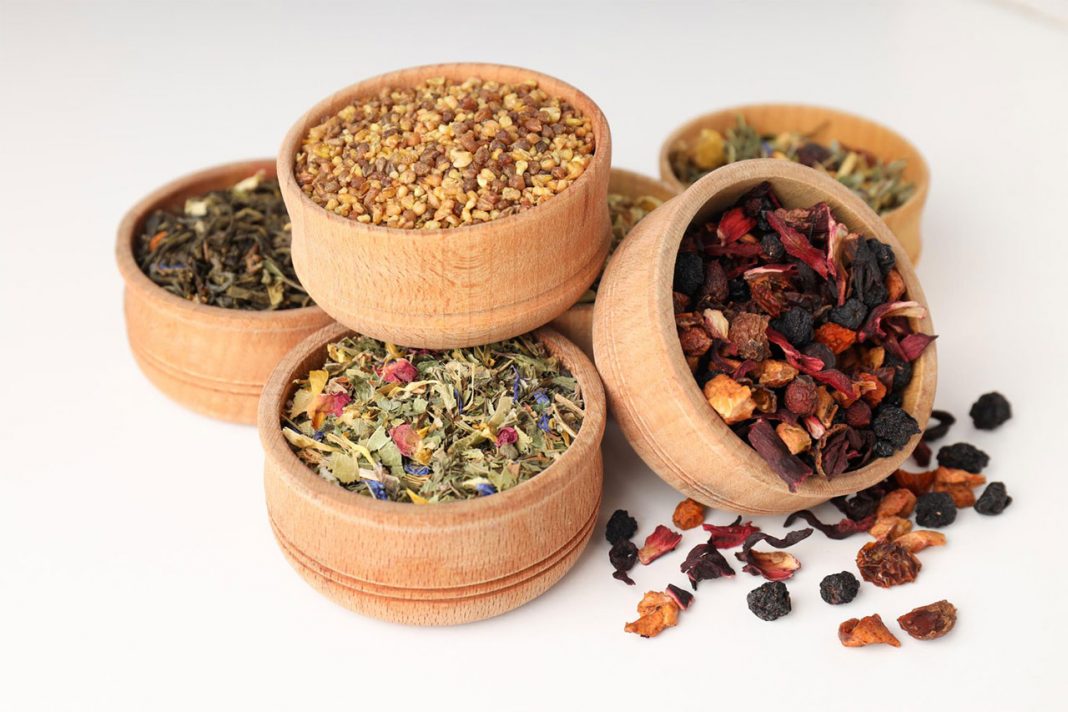There are many different types of tea and their benefits for your health may differ. Black tea is a type of tea that is rich in antioxidants and has been shown to boost heart health. Green tea is another type of tea that is full of antioxidants and has been shown to improve brain function. Oolong tea is a type of tea that can help with weight loss. White tea is a type of tea that has been shown to improve skin health.
“Enjoy life sip by sip, not gulp by gulp.”
The Minister of Leaves
If you’re a tea lover, you probably know that there are different types of tea, each with its own unique flavor profile. But did you know that different types of tea can also offer different health benefits?
In this article, we’ll take a closer look at some of the most popular types of tea – black tea, green tea, and white tea, as well as some other popular herbal teas – and explore some of the potential health benefits associated with each one.
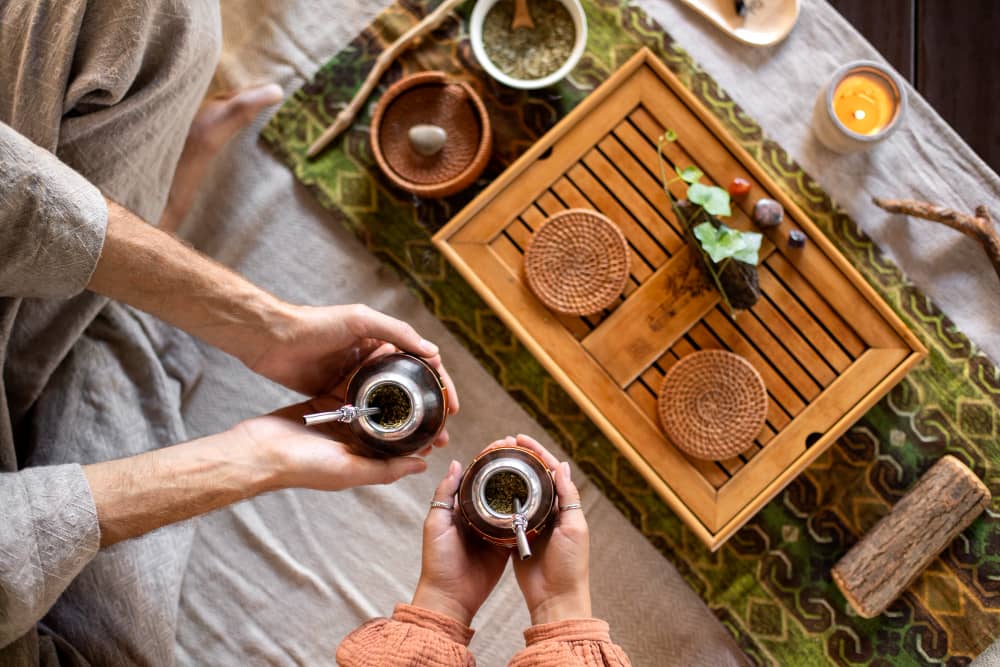
Different Types of Tea and Their Benefits
Tea is one of the most popular beverages in the world. There are many different types of tea, each with its own unique flavor and health benefits.

Black Tea
Black tea is one of the most commonly consumed teas worldwide. It is made from Camellia sinensis leaves that have been fully oxidized, meaning they have been exposed to oxygen to turn them black. Black tea has a stronger flavor than other types of tea because of this oxidation process. Black tea is also higher in caffeine than other teas, making it a popular choice for morning beverages. Black tea has numerous health benefits, including reducing the risk of stroke, improving gut health, and boosting heart health.

Green Tea
Green tea is made from unfermented leaves and has a lighter, more delicate flavor than black tea. Green tea is rich in nutrients and antioxidants and has been shown to boost metabolism and aid in weight loss.
White Tea
White tea is the least processed of all teas, made from the young leaves and buds of the plant Camellia sinensis. The leaves are allowed to wither in the sun or steamed before rolling and drying. White tea has a delicate flavor and is pale in color when brewed.
White tea is rich in antioxidants, which can help protect against cell damage and disease. Studies have shown that white tea may boost heart health, aid weight loss, and improve oral health.
White tea contains caffeine, but less than other types of tea. It also has higher levels of a type of antioxidant called catechins than other teas. These nutrients may contribute to white tea’s health benefits.
Oolong Tea
Oolong tea is a type of tea that falls somewhere between green and black tea in terms of oxidation. It is made from the leaves of the Camellia sinensis plant and typically has a floral or fruity flavor. Oolong tea is rich in antioxidants and has been linked to several health benefits, including weight loss, reduced stress levels, and improved heart health. Oolong tea is typically brewed using 1-2 teaspoons of dry leaves per cup of water. The leaves can be steeped multiple times, yielding a different flavor profile for each infusion. Oolong tea is best enjoyed without milk or sweeteners.
Health benefits:
Weight loss: Oolong tea has been shown to boost metabolism and promote weight loss. In one study, subjects who consumed oolong tea daily for six weeks lost more weight and body fat than those who did not.
Reduced stress levels: Oolong tea contains an amino acid known as L-theanine, which has been shown to promote relaxation and reduce stress levels.
Improved heart health: Oolong tea has been linked to lower levels of bad cholesterol and improved blood flow, which are good for heart health.
Pu’erh Tea
Pu’erh tea is a type of fermented tea that originates from China. It is made from a particular kind of Chinese tea plant known as Camellia sinensis var. pu-erh. The leaves are harvested and then sun-dried before they are fermented and aged. This process can take anywhere from several months to several years.
Pu’erh tea has an earthy and mellow flavor with hints of chocolate and leather. Additionally, pu’erh tea is rich in antioxidants and has been linked to numerous health benefits, including weight loss, improved cholesterol levels, reduced blood pressure, and improved digestion.
Herbal Tea
Different types of tea offer other benefits, and herbal tea is no exception. Herbal teas are brewed using a variety of different herbs, and each one has its unique advantages.
Some of the most popular herbal teas include chamomile tea, lavender tea, and ginger tea. Chamomile tea is often used as a natural sleep aid, as it can help to promote relaxation and calmness. Lavender tea has a soothing effect and is often used to relieve stress and tension. Ginger tea is excellent for digestion and can also help to reduce nausea and vomiting.
Herbal teas are generally safe for most people to consume. Still, it is essential to check with your healthcare provider if you have any medical conditions or are pregnant or breastfeeding, as some herbs can have contraindications.
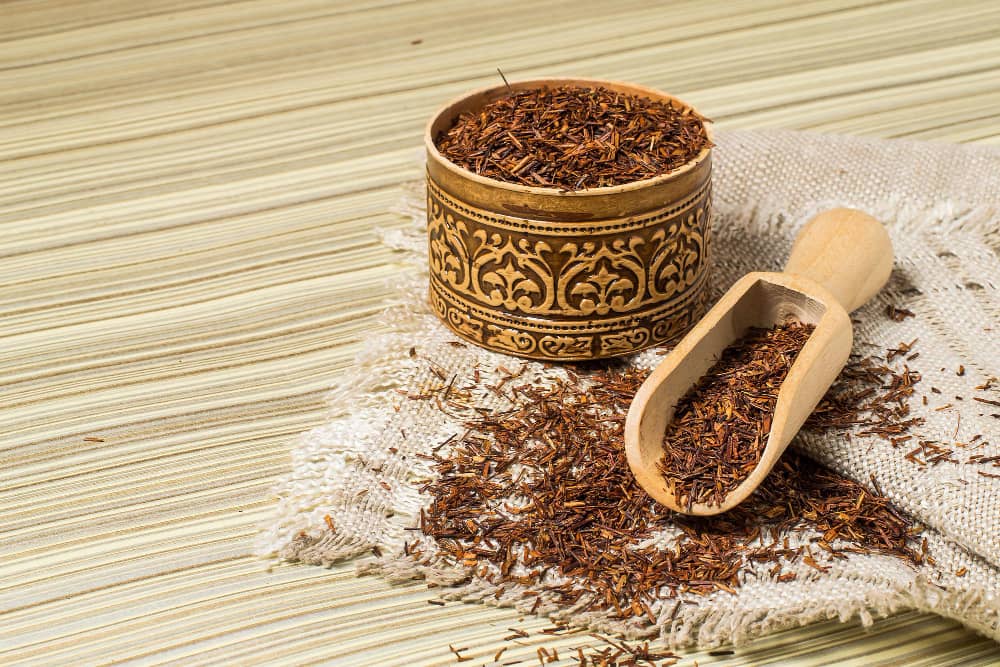
Rooibos Tea
Rooibos tea is an herbal tea made from the leaves of the South African red bush. Rooibos tea is naturally caffeine-free and is rich in antioxidants, which makes it a healthy choice for those looking for an alternative to black or green tea. Rooibos tea has a sweet, earthy flavor and can be enjoyed hot or iced.
Yerba Mate Tea
Yerba mate tea is a type of tea made from the leaves of the yerba mate plant. It is popular in South America and has several health benefits. Yerba mate tea contains caffeine and other compounds that can boost energy levels. It also has antioxidants that can help protect against cell damage and disease.
Additionally, yerba mate tea has been shown to improve mental focus and increase physical stamina. Yerba mate tea is generally safe to consume in moderation. However, some people may experience side effects such as nausea, vomiting, and diarrhea. If you have any concerns or medical conditions, you must speak with a healthcare provider before drinking yerba mate tea.
Chamomile Tea
Chamomile tea is made from the dried flowers of the Chamomile plant. Chamomile tea has a sweet, floral taste and is naturally caffeine-free. Chamomile tea is traditionally a relaxant and effectively treats anxiety and insomnia. Chamomile tea is also high in antioxidants and has anti-inflammatory properties. Chamomile tea has many potential health benefits, including soothing stress, improving sleep quality, and reducing inflammation.
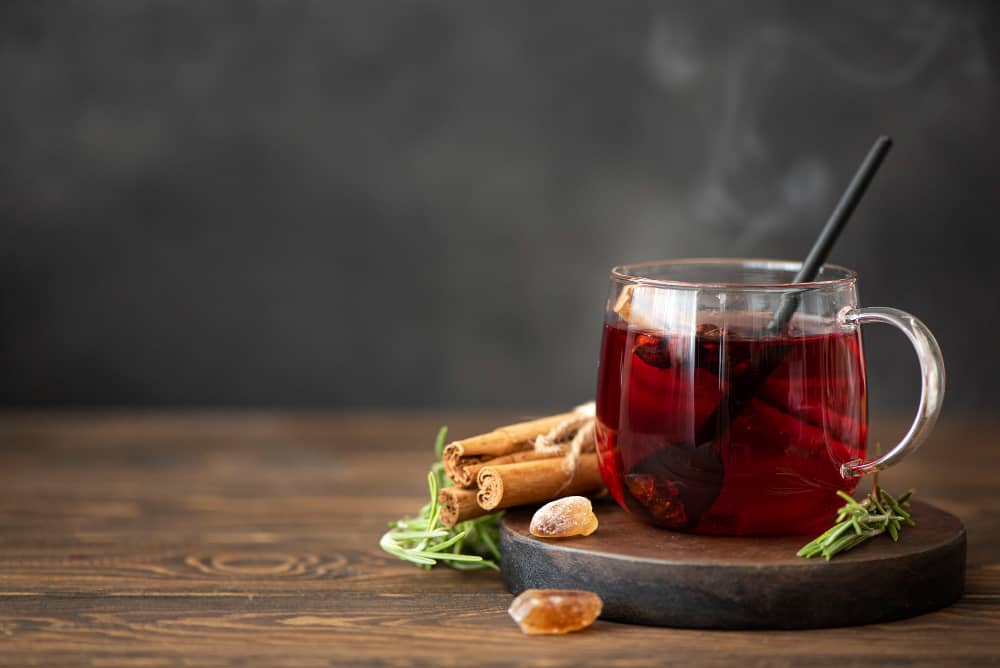
Hibiscus Tea
Hibiscus tea is made from the dried Hibiscus sabdariffa flower and has a deep red color when brewed. It is tart and tangy, with a slightly sweet flavor. Hibiscus tea is rich in antioxidants and has many health benefits, including lowering blood pressure, improving heart health, and helping to treat anxiety and depression.
Peppermint Tea
Peppermint tea is one of the most popular types of herbal tea. It is made from the leaves of the peppermint plant and has a refreshing, minty taste. Peppermint tea is rich in antioxidants and has many health benefits, including improved digestion, reduced stress levels, and relief from headaches and muscle pain. Peppermint tea can be enjoyed hot or cold and is an excellent choice for those looking for a healthy alternative to sugary drinks like soda.
Lemon Balm Tea
Lemon balm tea may offer several potential benefits, including aiding digestion, reducing stress and anxiety, and boosting cognitive function. Additionally, lemon balm tea contains antioxidants that may protect against cell damage and improve heart health. Add 1–2 teaspoons (2–4 grams) of dried lemon balm leaves to 8 ounces (236 ml) of hot water to make lemon balm tea. Steep for 5–10 minutes, then strain the leaves and enjoy.
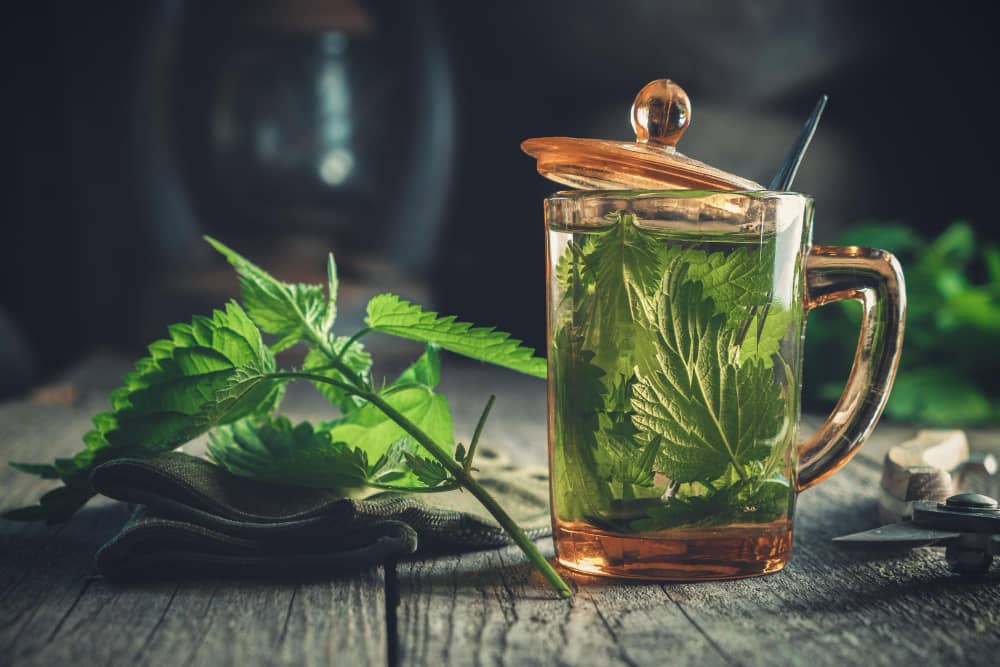
Nettle Tea
Nettle tea is made from the leaves of the common nettle plant, which is found throughout Europe, Asia, and North America. Nettle tea has a long history of use as a traditional herbal remedy and modern science has begun to validate many of its purported health benefits.
Nettle tea contains vitamins and minerals, including iron, calcium, magnesium, and vitamins A and C. It also contains flavonoids, tannins, and other antioxidants believed to benefit its health. Nettle tea has been traditionally used to treat various conditions, including allergies, arthritis, urinary tract infections, and digestive issues.
Recent studies have shown that nettle tea can help to reduce inflammation, improve blood circulation, and boost the immune system. It is also believed to have diuretic properties and may effectively treat respiratory conditions such as bronchitis and asthma. Additionally, nettle tea has been shown to promote weight loss by helping to increase metabolism and reduce appetite.
Brewing nettle tea is easy. Add 1-2 teaspoons of dried nettle leaves (or 1 tablespoon of fresh leaves) to a cup of boiling water and steep for 3-5 minutes. Nettle tea can be enjoyed plain or sweetened with honey or lemon.
Tea is more than just a hot beverage; it is a centuries-old tradition with many health benefits—different types of tea offer different benefits, from promoting heart health to boosting cognitive function. Black, green, white, oolong and pu’erh teas come from the same plant, Camellia sinensis, but are processed differently. Black tea is fully oxidized, while green tea is unoxidized. White tea is minimally oxidized, and oolong and pu’erh teas are partially oxidized. Herbal teas, such as chamomile and ginger tea, do not come from the Camellia sinensis plant but offer unique health benefits.
So which tea should you drink? It depends on your goals. If you want to improve your heart health, black and green tea are good choices. If you’re trying to boost your cognitive function, white and oolong tea are your best bet. And if you want to relax, any tea will do. Hibiscus, peppermint, lemon balm, and nettle tea are all great options for relaxation.
So, next time you reach for a cup of tea, remember that different types can offer other health benefits. Choose the one that best suits your needs, and enjoy!
Post Disclaimer
The information contained in this post is for general information purposes only. The information is provided as is and while we endeavour to keep the information up to date and correct, we make no representations or warranties of any kind, express or implied, about the completeness, accuracy, reliability, suitability or availability with respect to the website or the information, products, services, or related graphics contained on the post for any purpose.
These statements have not been evaluated by the FDA and are not intended to diagnose, treat, cure or prevent any disease or health condition. If you have specific healthcare concerns or questions about the products displayed, please contact your licensed healthcare professional for advice or answers.

